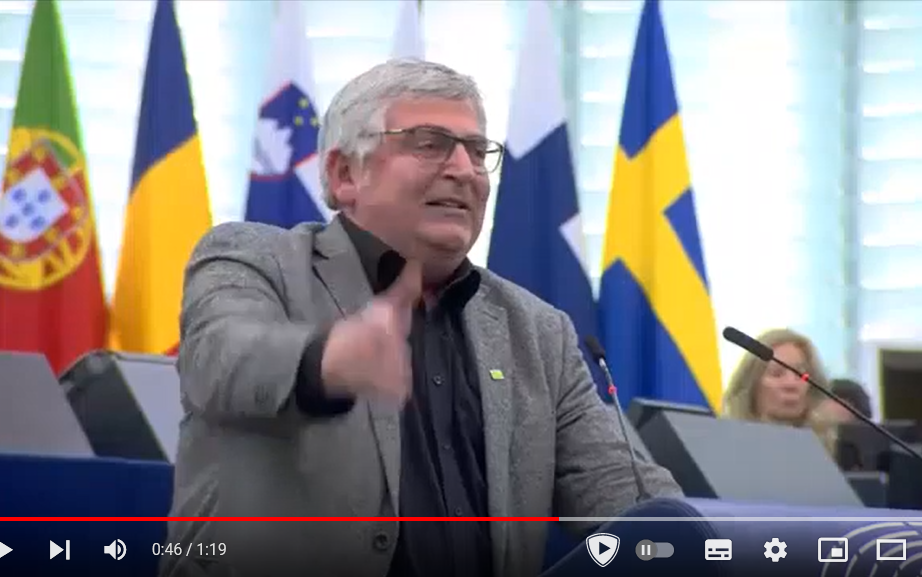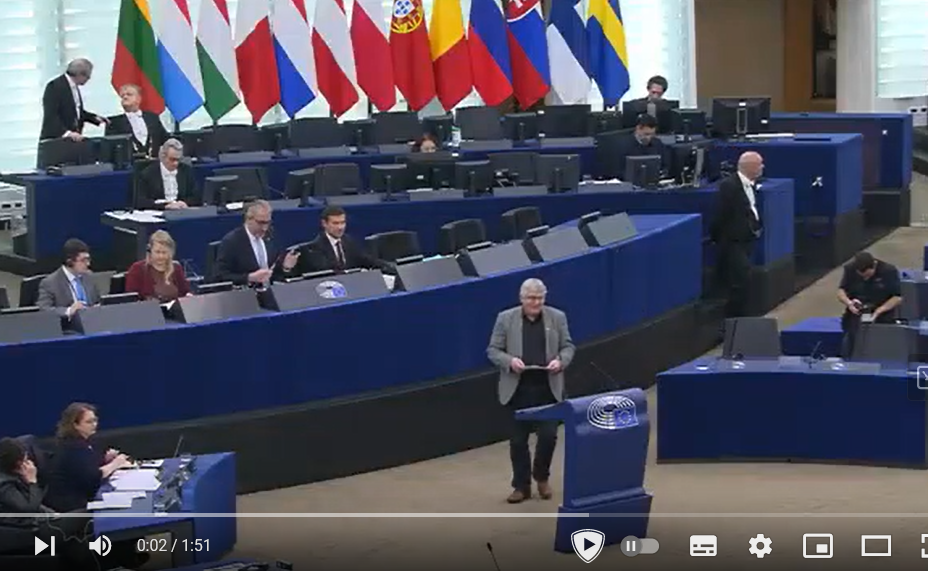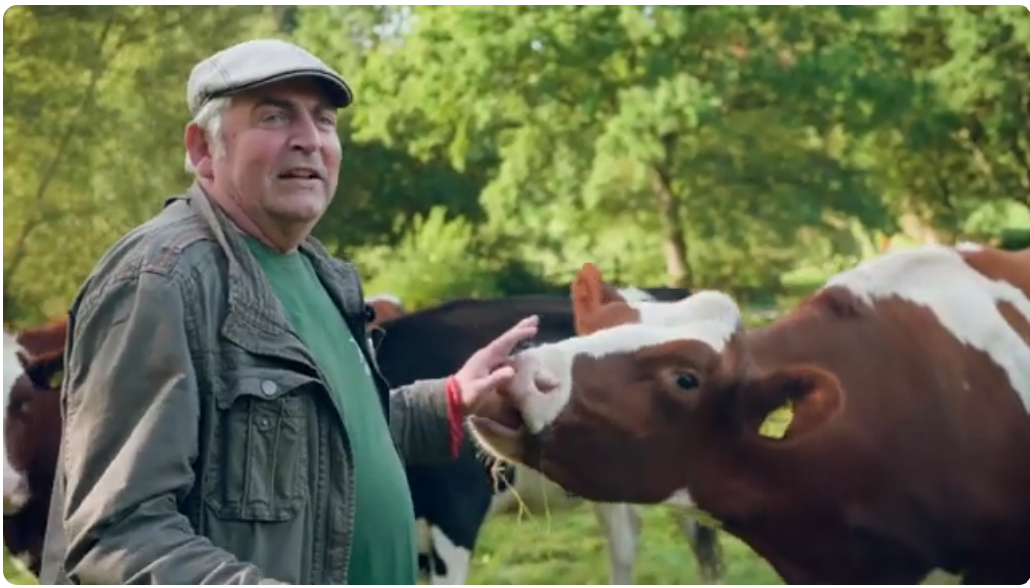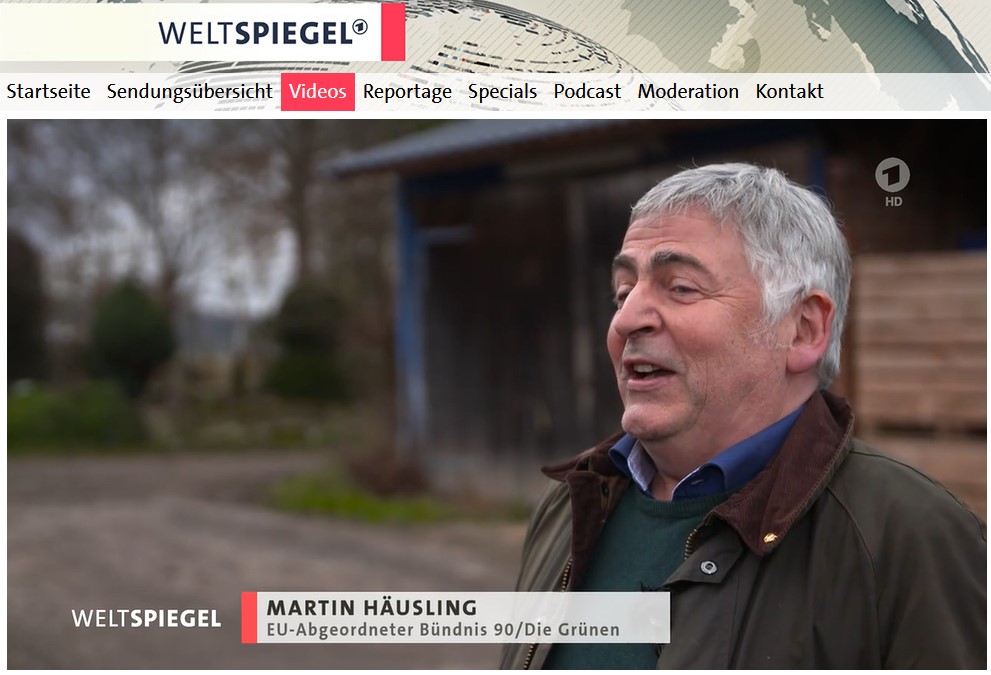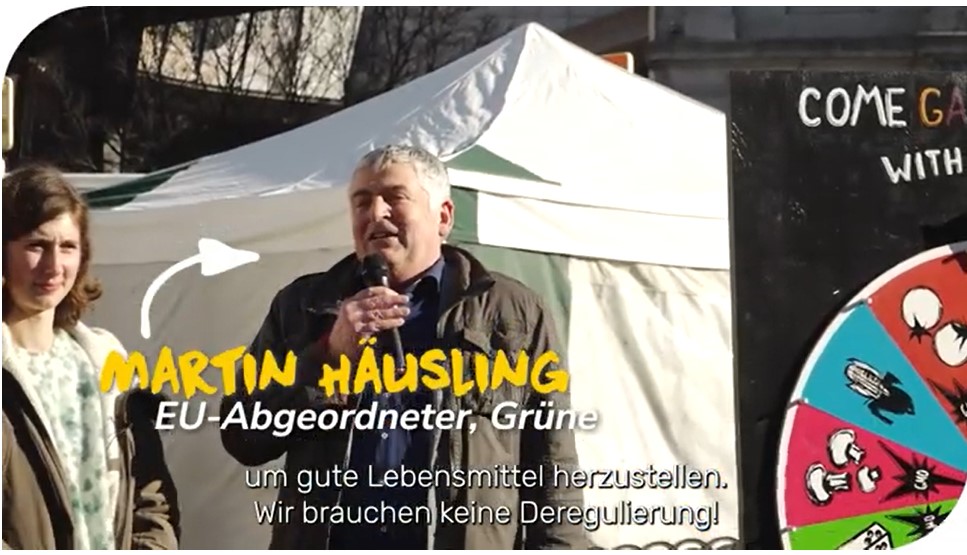Plea for fair play and constructive tone in committees
On the first exchange with the French Presidency in the Committee on Agriculture and Rural Development, Martin Häusling, Coordinator of the Green/EFA in the Parliament declares:
“It is always a pleasure to exchange with guests in our Parliamentary Committees and an honour to welcome Ministers of the new Presidency. This was also the case when the French Minister Denormandie visited the Committee for Agriculture and Rural Development on Tuesday, 25.1.2022 to present the working program for the French Presidency for the first term of 2022.
As our discussion has been mentioned by certain media and detailed in Agrafacts (NO.7.22), I consider it important to state that my statement on organic support during the exchange with the Minister in the Committee of Agriculture was not a false statement. My statement referred to the disadvantage that the organic production will see under the new French Strategic Plan, and I specified that this disadvantage relates to the cut in maintenance payments for organic production.
I recall, these maintenance payments have been replaced by an ecoscheme paying at a lower rate, when compared to the average support that established organic farmers receive today.
In this regard, I also wrote to the Minister just after our exchange.
Of course, I am looking forward to a constructive and fruitful cooperation with the French Presidency and I will be delighted if the next exchange with Minister Denormandie will be held under more auspicious circumstances.“
letter MEP, Martin Häusling to French Minster Denormandie (25.01.2022)
extract article agrafacts (No.7.22; 26/01/2022):
[…]
EP’s COMAGRI BACKS FRENCH MINISTER DENORMANDIE ON RECIPROCITY
COMAGRI MEPs broadly supported French Minister Julien Denormandie’s emphasis on reciprocity in trade deals, but some worried that the terms agreed with Mercosur were anything but reciprocal on standards. Italian MEP Herbert Dorfmann wanted to hear what Denormandie had to say about the market situation. The German speaking member from Südtirol told the Frenchman that he very “much supports what you have said on food sovereignty & food production.” “Yes we need sustainability,” the EPP euro-deputy outlined. “Then of course yes there has to be an element of intensiveness in order to guarantee food supply,” he added.
Italian MEP Paolo De Castro raised two planned pieces of legislation, expected in the first semester, one on GIs & the other on promotion. “Minister, there is a risk here… of seeing two of the biggest success stories in the EU being dismantled,” the S&D member continued. He also raised the issue of reciprocity of standards in trade. “We want to be ambitious in terms of animal welfare & environment, but therefore there should be greater respect [for EU standards] from those importing their product into the European Union,” he said. On promotion, De Castro added that “I’m sure you are well aware of how concerned we are about the approach on alcohol & meat… which often goes above & beyond the scientific evidence.”
Renew’s Ulrike Müller raised the subject of carbon farming, complaining that “I think this topic gives us more questions than answers.” “How will we incorporate this & the decisions on farm to fork which mean that production will go down in future?,” the German politician wanted to know. German Green Martin Häusling complained that “this new CAP isn’t much progress.” He told Denormandie that “for example organic farming in your country is also disadvantaged…that’s not a good signal when in the Farm to Fork Strategy we have a target of 25% organic.” “When it comes to reducing pesticides you talk about equal standards,” he noted. “Yes that would be a good thing, but France has re-authorised neonicotinoids. How does that fit into the strategy or in the European strategy as a whole?” “We are rubbing salt in people’s eyes if we want to see carbon farming as a new business model & have biochar [charcoal used as soil conditioner] inserted in the ground to do the environmental protection technically,” he said. “We need to look at the humus … we need to protect soils to maintain green areas.”
Meanwhile, the French ID member Gilles Lebreton went on the attack, telling Denormandie that “talk about food sovereignty that presupposes improving trade relations between farmers & supermarkets, but how can you succeed in Europe where you have failed in France?” “Macron approved CETA with Canada which means that we can import 65 000 tonnes of beef to Europe,” he complained. “Producers here in Europe are dying out. I was in Nantes last weekend, a producer said he was quitting the sector,” Lebreton stated. Polish ECR MEP Zbigniew Kuźmiuk complained that the double standards in trade Denormandie was promising to tackle were built in to the Mercosur agreement. He also wanted support for farmers hit by increased energy costs. For his part, Ireland’s Luke Ming Flanagan also contrasted the terms of Mercosur with the French Minister’s ideas on food sovereignty. “Still the idea exists that we might import beef into the European Union where we produce it more sustainably … than they do in the Mercosur area,” he said. The former Commissioner Hogan said it was off the table. But it was [still] on.”
MEPs HÄUSLING (DE), LEBRETON (FR) RAISE FRENCH MINISTER’S HACKLES
French Farm Minister Julien Denormandie had some angry words for two MEPs at the Jan 25 COMAGRI meeting. The current Council chair accused Germany’s Martin Häusling of saying something that wasn’t true about payments in France to the organic sector, while there was a telling off for Frenchman Gilles Lebreton for concentrating on issues of importance in France, in the European Parliament. “Mr Häusling, you are very faithful to your group but you are saying things that are false,” the Minister said. “Whether you are in a national parliament or the European Parliament, it doesn’t change anything … what you’re saying is false.” “I want to react to this,” he went on. “It is false to say that in France… there is a reduction in organic support, it is false.” “We’re moving from the €253 to €340 million such aid in France,” the La République En Marche! politician said, complaining that “asking about a national issue seems to be a habit of yours.” “In France, we have gone further than the national strategic plan because we have organic credits,” he continued. “You could also have said that in France since 2017 we have doubled the area for organic farms.” “I think that you & some of your colleagues have forgotten something that is very important for the future of Europe … that is the fact that agriculture needs to feed us,” he said. To the Front National’s Lebreton, the Minister’s response was “well what can I say.” “I’m not sure what you & some others of your colleagues understand here,” he said. “I am here as a council Chair. You never said the word Europe, not once. For an MEP talking to a member of the Council Presidency & not talking about Europe well that's disrespecting the institutions.” “On behalf of France, I would like to apologise for the behaviour of some French MEPs, who are really not at the level one would expect,” Denormandie said. […]






